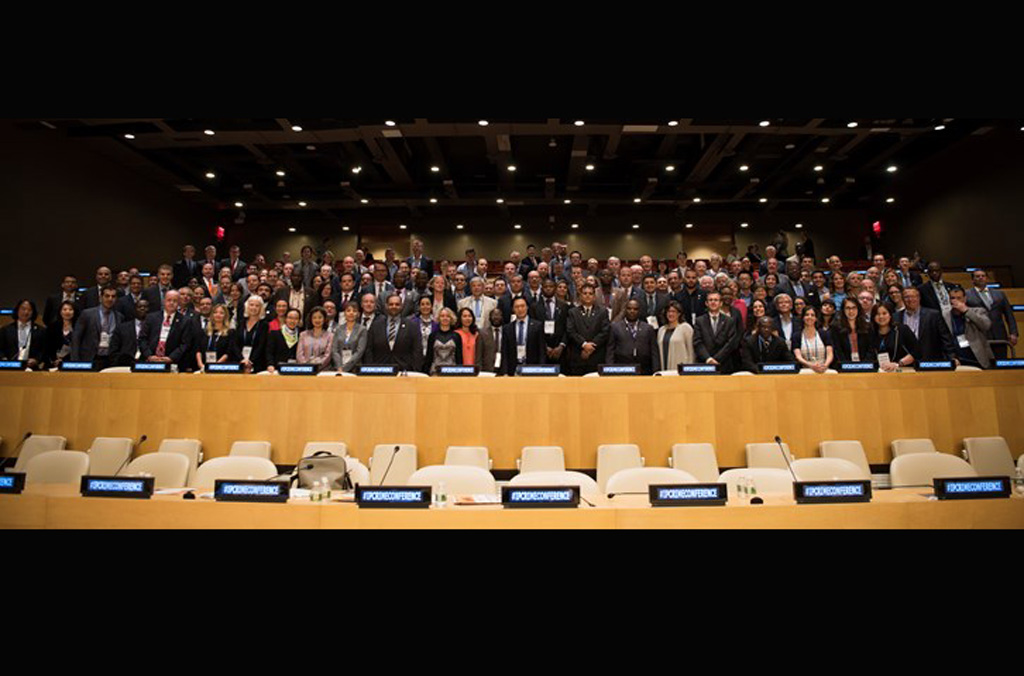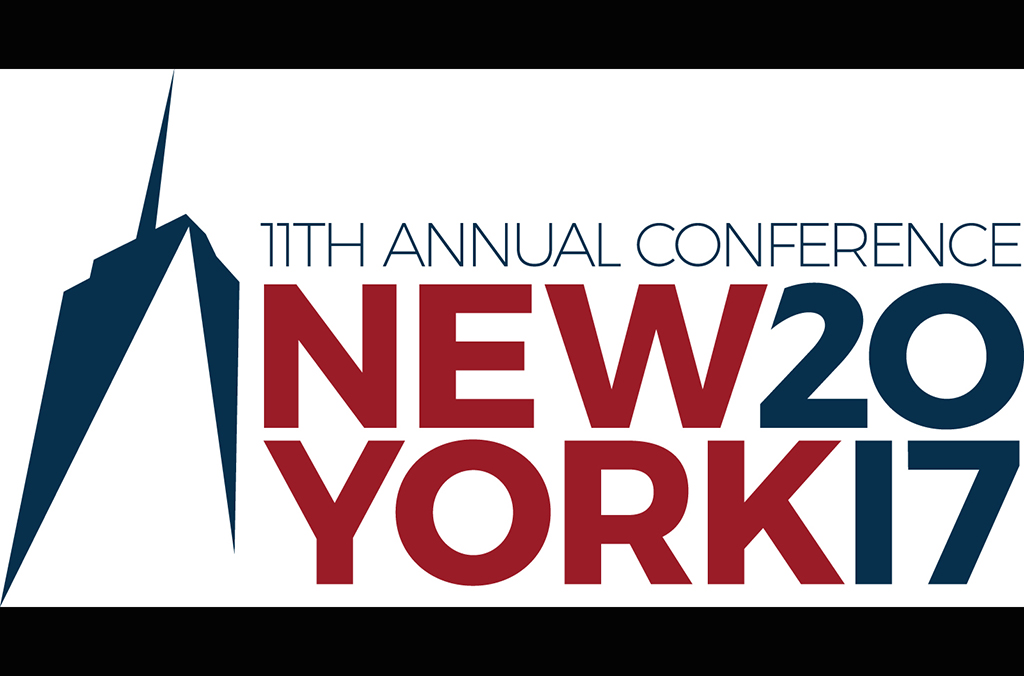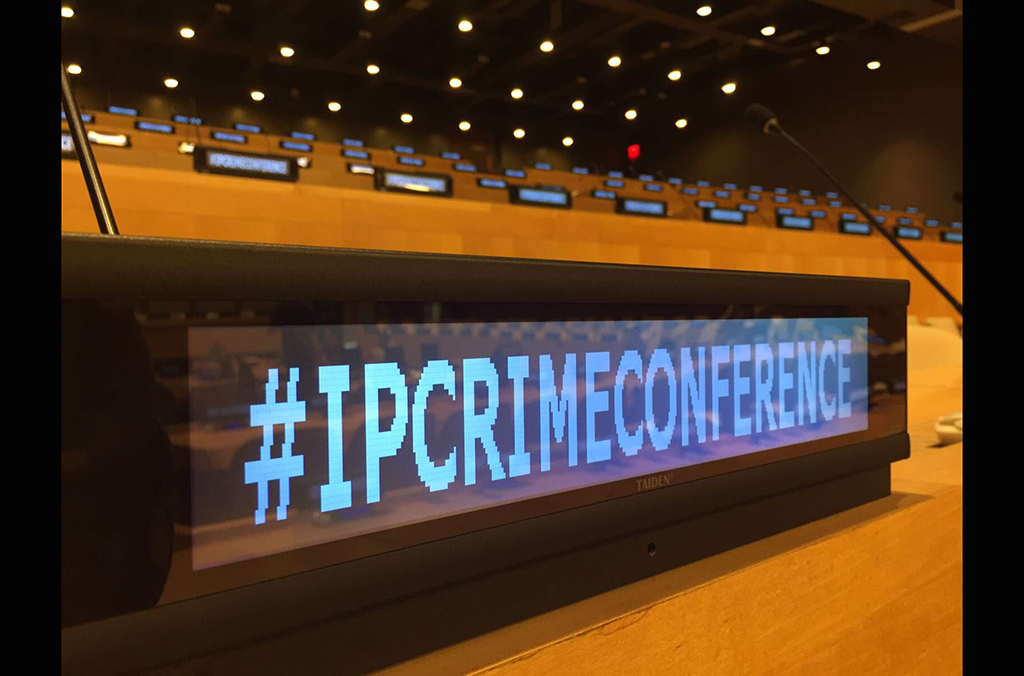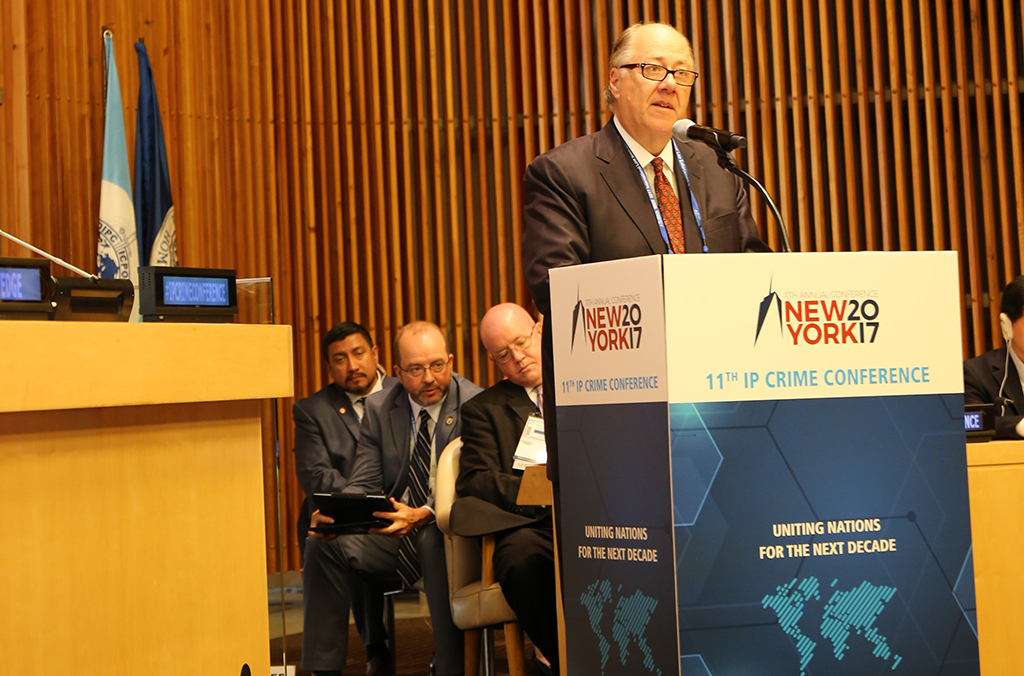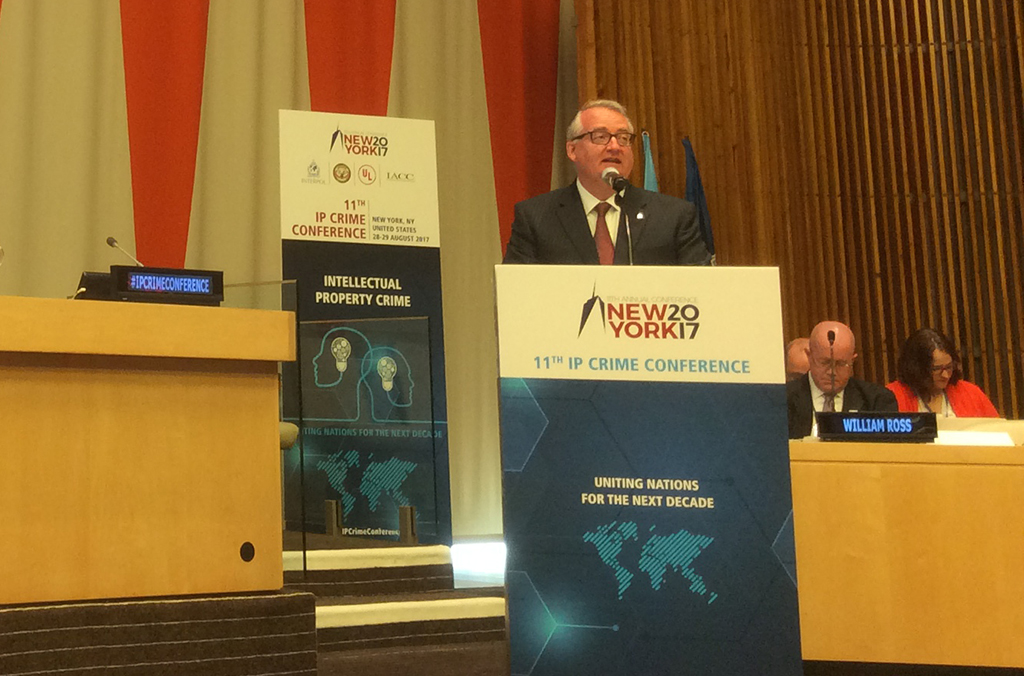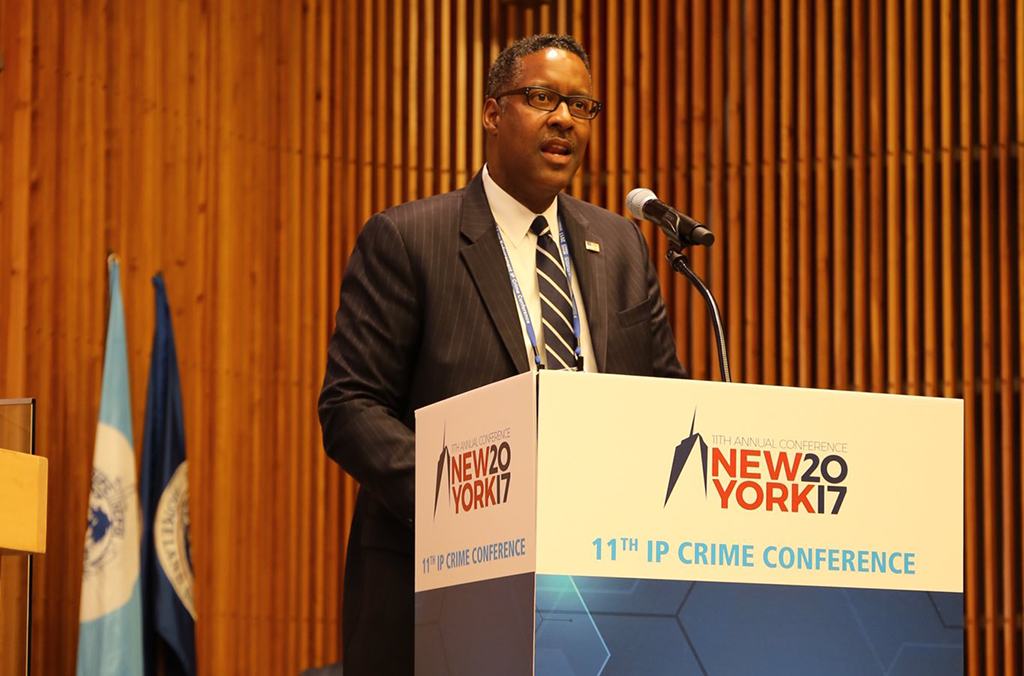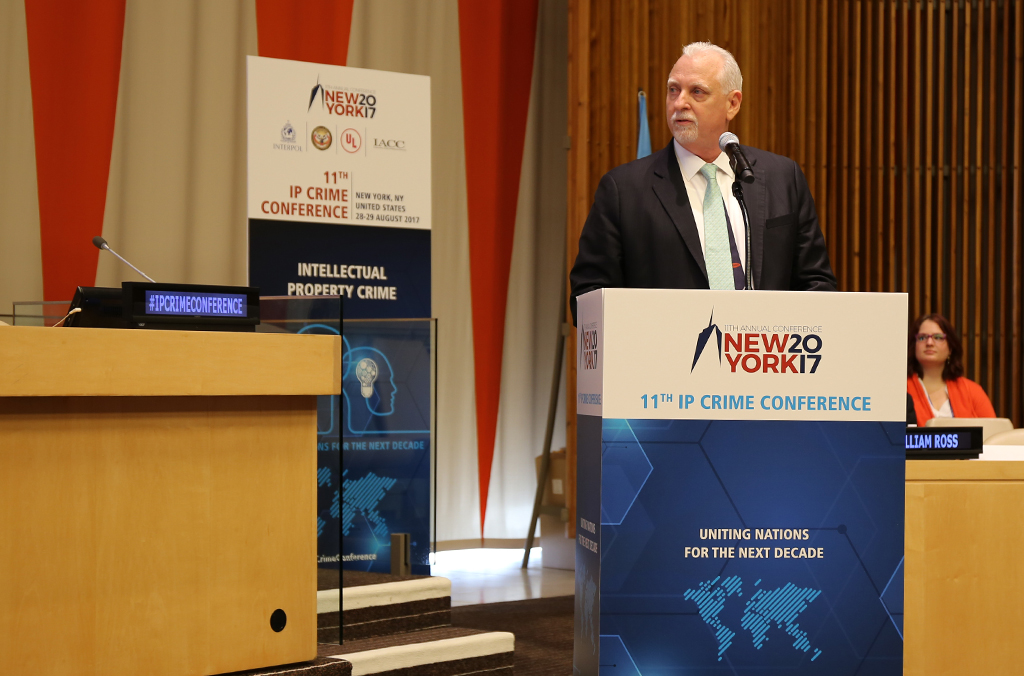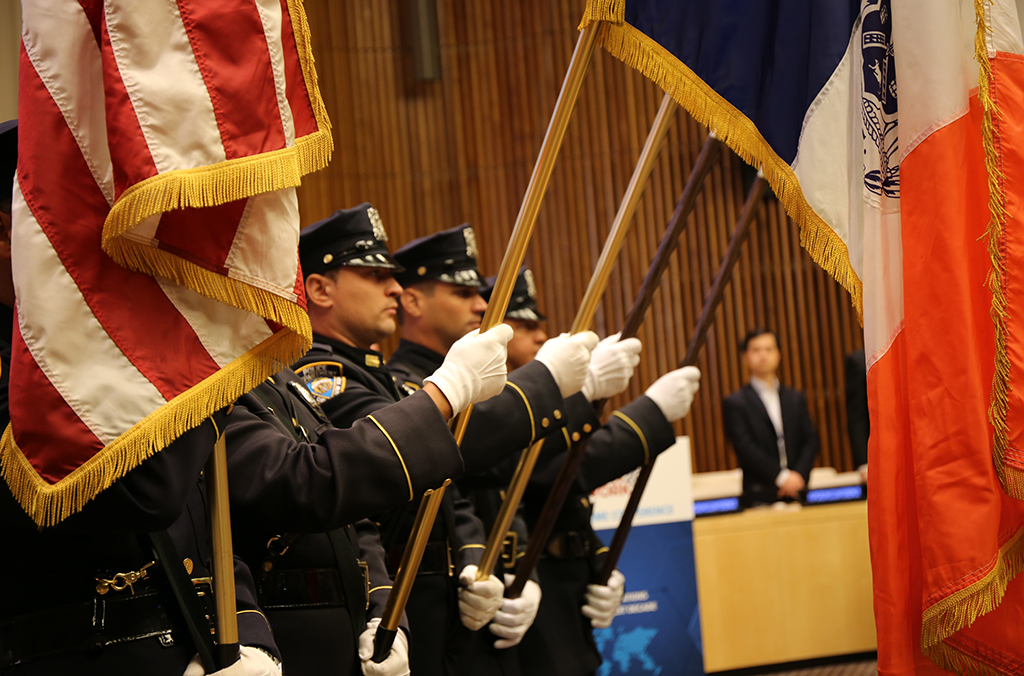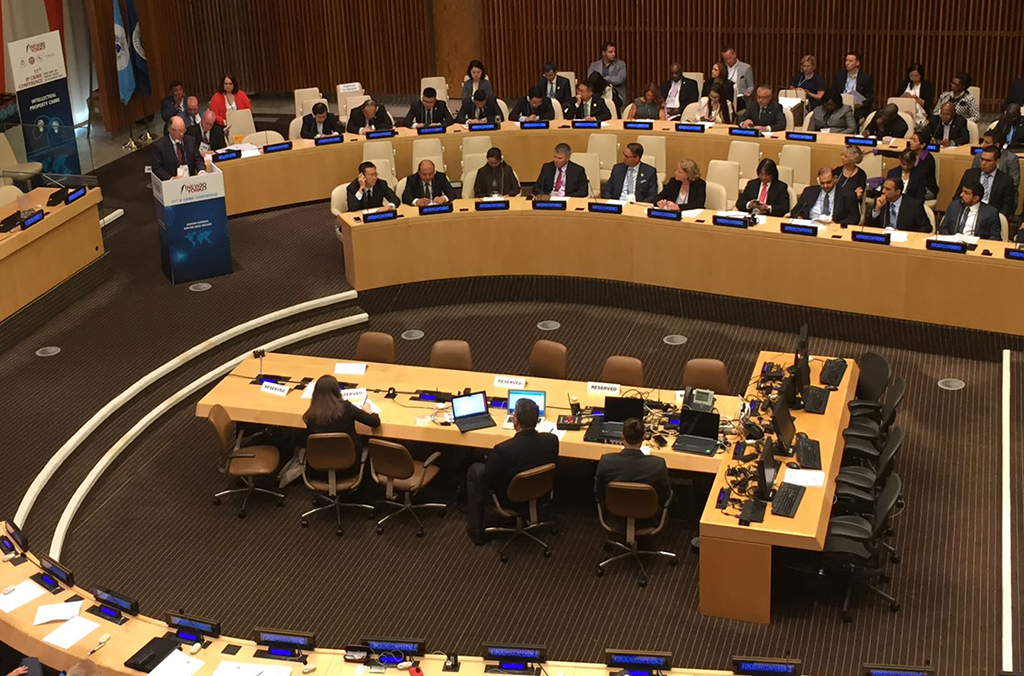NEW YORK, USA – Law enforcement officials, security and industry experts are meeting in New York to strengthen global partnerships against intellectual property (IP) crime.
Through a review of operational case studies, best practices and industry perspectives, the 11th annual International Law Enforcement IP Crime Conference also aims to shape effective enforcement strategies.
The two-day (28 and 29 August) event is co-hosted by INTERPOL, the US Immigration and Customs Enforcement (ICE), and the National Intellectual Property Rights Coordination Center (IPR Center), in partnership with UL (Underwriters Laboratories) and the International Anti-Counterfeiting Coalition (IACC).
“The US Immigration and Customs Enforcement’s National Intellectual Property Rights Coordination Center is committed to targeting the illegal importation of counterfeit goods that threaten health and safety, wreak havoc on the U.S. economy and fund other types of criminality,” said Acting ICE Deputy Director Peter T. Edge.
“We are attacking transnational criminal organizations at all points in the global supply chain by working with our international partners to identify foreign manufacturers engaged in piracy and dismantle their production capabilities,” added Mr Edge.
Nearly 600 participants from more than 60 countries will focus on evolving crime trends in areas such as illicit trafficking on the Internet, as well as on protecting the public from potentially harmful products.
In this respect, more than 420 tonnes of illicit pharmaceutical and medical products worth approximately USD 21.8 million were recently seized during Operation Heera in West Africa. INTERPOL coordinated the operation which saw law enforcement forces collaborate with multi-agency stakeholders in the region.
“Combining our efforts on a global scale by involving all stakeholders from the public and the private sectors is the only way to get ahead of the ever-advancing criminals who make significant profits distributing products that are potentially harmful to public health,” said INTERPOL's Executive Director of Police Services, Tim Morris.
“With illicit markets expanding globally, INTERPOL’s role is fundamental in facilitating international efforts aimed at dismantling the transnational organized crime groups involved in illicit trafficking,” added Mr Morris.
INTERPOL’s Illicit Goods and Global Health programme encompasses all industry sectors and products affected by this serious organized crime area. It works with stakeholders to address a range of IP crimes which include illicit medicines, electronics, food and drink.
IACC President Bob Barchiesi said: “Counterfeiters do not operate within the confines of country borders and neither should we. The IACC believes that real, practical, effective and impactful solutions can only be produced through international cooperation by all parties.”
“Transnational IP crime groups continue to produce dangerous products at an alarming rate and on an industrialized scale, adapting quickly to changing circumstances,” said Keith Williams, UL President and CEO.
“The IP Crime Conference is a perfect example of one of the many tools that have been developed to stem the flow of illegal counterfeit products. This year’s conference will drive discussion about technologies and other solutions that diminish product counterfeiting,” added Mr Williams.
The last decade has seen the successful development of the International IP Crime Investigators College (IIPCIC), an INTERPOL initiative undertaken jointly with UL to further strengthen existing capacity building activities.
The online training platform is available in various languages and has evolved into a highly recognized learning tool for law enforcement globally, accessed by over 13,500 users from more than 150 countries.




